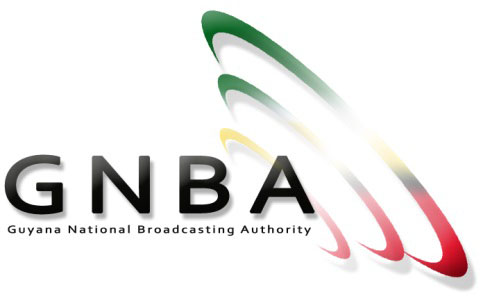Broadcast infringements have declined significantly, according to the Monitoring and Compliance Chair of the Guyana National Broadcasting Authority (GNBA) Jocelyne Josiah, who has attributed this development to the regular interaction between the entity and errant operators.
Speaking at a stakeholder engagement organised by the GNBA on Friday at Herdmanston Lodge, in Georgetown, Josiah disclosed that in January infringements totalled 39. In February there were 40 and at the end of March, 49. She said in April the infringements fell to 22 and for May approximately 15 to 20 had been recorded.
These infringements, she explained, were profanities, particularly in movies that were aired and also in songs; inaccurate reporting; graphic details, inclusive of close-ups of dead bodies; smoking and alcohol advertisements; irresponsible programme hosting; irresponsible reporting of persons in distress; and failure to protect persons under the age of 18.
Josiah told the representatives of almost 20 radio, television and cable stations from across the country who gathered for the engagement that the decrease may be an indication that the one-on-one encounters and the special investigative committee hearings with broadcasters are “bearing fruit.”
The forum was the third of its kind hosted by GNBA and the first for the year. It is expected that three more engagements of this nature will be held before the end of the year, with a specific focus on citizen’s monitoring, community radio and creative programming. Yesterday’s engagement focussed on self-monitoring and self-regulation.
Josiah, in her presentation, reminded that GNBA aims to ensure the highest standard of broadcasting in Guyana. She said the authority’s main concern is regulating and monitoring output to protect the public, particularly children, against potentially harmful material.
“In so doing we propagate harmony rather than dissension, sober debate rather than hate speech, and social trust and country development rather than suspicion,” she said, before adding that the authority is more focussed on regulating harm as opposed to taste.
“It is not so much what is in poor taste but what really is harmful,” she stressed, before informing that to date a total of 19 TV stations—14 of which are in Georgetown—along with approximately 20 radio stations are registered, ensuring that they are technically reachable.
She said the responsible GNBA department still strives to monitor these stations by manually scrutinising and analysing broadcast content, while taking careful note of infringements which are submitted to management on a weekly basis.
She also said the GNBA has been reviewing its overall system in relation to infractions, from the tracking stage through to analysis and contact with the broadcasters. “As we keep saying, it’s a work in progress, so it is constantly undergoing reviews and internal evaluation. We are never out of work. We are still at the crawling stage [but] there is a lot of work to be done,” she stressed, before noting that the authority is governed by the Broadcasting Act of 2011 and its 2017 amendments, as well as the guidelines for broadcasters and complaints procedures.
Josiah stressed that content is monitored to guide and not to censor. She urged broadcasters to submit their log and backups of programmes as stipulated in the Act without further delay. “This will be of great help in our monitoring schedule. She informed that the authority is also working on upgrading the department technically, with a view to improving storage.
During the opening session, 14 samples of distasteful content aired on the television were replayed. Most were aired on MTV and NTN and reflected sexual content, indecent and other forms of inappropriate language and lawless dancing.
Subsequently, Josiah said that the samples shown were broadcast on television during prime time. She would later explain— in response to queries— that prime time is from 6 am to 10 pm. This response attracted disagreement from some broadcasters but she explained that this is what is in the guidelines and the Act.
Communication Specialist and GNBA Board Member Rovin Deodat added that prime time is general audience time. He said that this is different from the commercial prime time, during which persons will have to pay more for advertisements.
Josiah noted that once infringements are spotted, contact is made with the errant broadcaster and the GNBA’s special investigative committee becomes involved. She said that there will be a warning first, followed by fines if corrective action is not taken. “It’s a pity that the regulatory body has got to be behind the broadcasters with a big stick. The same guidelines that we have, that we work by, you should be working by as well,” she stressed.
Fines
To date, no broadcaster has been fined. In addressing this, Chairman of the GNBA Leslie Sobers, said the authority is in the process of finalising the sum for the fines. He stressed that the authority has the power to impose fines, revoke licences, suspend licences or shorten the licensing period and is not precluded from going to court. He explained that if a broadcaster does not agree with a decision taken by the authority, they can appeal in the Full Court or the High Court. On the other hand, he said that the authority can approach the court and ask for assistance in dealing with a broadcaster who commits a violation.
Sobers noted that the fines list will soon be published for infractions such as failure to turn up to a hearing and failure to comply. He indicated, too, that broadcasters will be consulted on the amount of weight to be given for the different infractions as it relates to fines.
During the session, the GNBA was asked about delayed broadcasting.
Deodat stressed that every broadcaster is required to have a delay mechanism. The authority, he informed, has developed a grace period for this to be installed by broadcasters but said that at some stage, “We have to say there is no excuse.” He stressed that in the absence of the delayed broadcasting, the broadcaster will be at fault and would have to be penalised.
He said the GNBA has been working with broadcasters, especially those who indicate that they are making efforts to install such a system, but noted that time is running out. “This is trying for a year plus,” he added.
Sobers said that it is expected that broadcasters will exercise some level of maturity and put systems in place, knowing that it is fundamental. “It irks me when I hear a host saying to people, ‘I am sorry I will have to terminate the call because you should have turned your television down’ …Get the delay system, it is part of the requirement for proper broadcasting,” he said.







